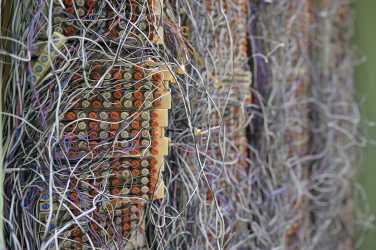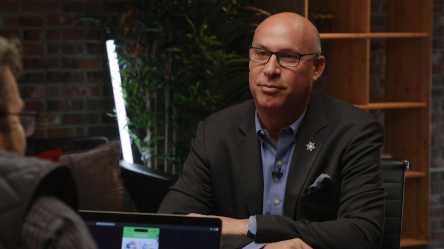Mark Papermaster leaves Apple three weeks after Antennagate
Clad in his trademark black turtleneck, Steve Jobs glared at the press while firing back at allegations about iPhone 4’s “antennagate” in a hastily called press briefing at Apple headquarters last month. He was on the defensive, swinging wildly, complaining that the iPhone 4’s antenna reception woes were overblown by a media that likes to “tear down” successful companies.
Looking like a school kid in a playground spat, Jobs snidely admitted to a problem in a way that makes the accuser seem in the wrong. His rhetoric digressed into a desperate attempt at tying Apple with patriotism: “Would you rather we were Korean companies rather than American companies?”
We know Jobs is one of the most fierce CEOs in Silicon Valley and perhaps on the planet, a supremely passionate techie with an extraordinary vision about what people will want. But this was the dark side of Steve Jobs put on full display and in high-def, the childish part that no one likes to see including himself. Surely, someone would have to pay for this antenna issue.
Late last week, Mark Papermaster, Apple’s senior vice president for iPhone engineering, announced he was leaving the company.
The Apple rumor mill quickly shot into overdrive. Sources told the Wall Street Journal that Jobs lost confidence in Papermaster and banned him from the decision-making process months ago. The New York Times reported that Papermaster was responsible for a number of hardware-related problems, such as the inability to get a camera into the latest iPod Touch.
But my guess is that Papermaster isn’t such a bad guy. A former IBMer, Papermaster has corporate ideas of hierarchical management and product responsibility that clash with Apple’s love of the secretive startup culture. Keep in mind he came on board while Jobs was recovering from a liver transplant, and thus he really didn’t know how things were done at Apple.
When the iPhone 4’s antenna problem first surfaced, Apple insiders revealed that Jobs knew about it during the development phase—yet allowed the flawed antenna to make it to market. Did Papermaster play a role in the leak?
“I’ll bet he was connected to the story that Jobs signed off on the antenna, and this was his ‘thank you’ note from Jobs,” says analyst Rob Enderle of the Enderle Group. “At IBM, you are drilled about telling the truth, and Jobs has only a passing acquaintance with that word. Any IBMer would likely not do particularly well in Apple as a result.”
Was Papermaster a stiff IBMer who just didn’t get Apple’s culture? A man over his head in charge of cool Apple products? Or a truth teller in a company built on secrecy?
Sources told the Wall Street Journal that Papermaster’s departure came as a result of a “falling out” with Jobs. But the truth is that Papermaster may have made the perfect fall guy.
Tom Kaneshige covers Apple and Networking for CIO.com. Follow Tom on Twitter @kaneshige. Follow everything from CIO.com on Twitter @CIOonline. Email Tom at tkaneshige@cio.com.








